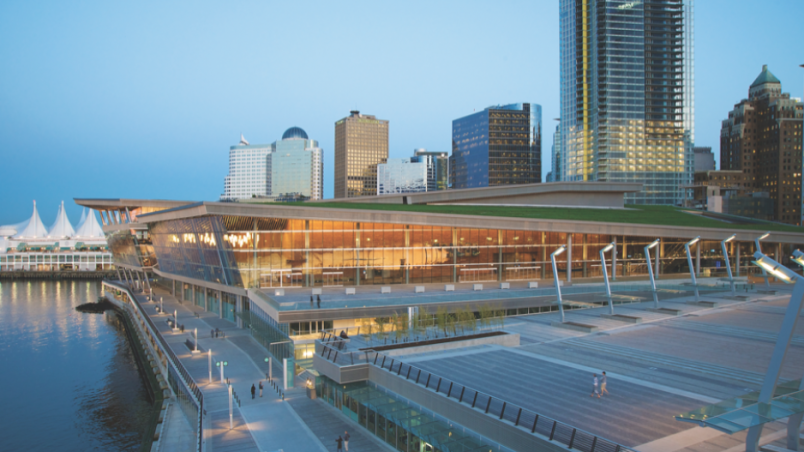When the annual TED Conference returned to the city a year ago after a two-year pandemic pause, the Â鶹´«Ã½Ó³»Convention Centre charged organizers $118,000 for more than two weeks of use.
Heavily censored invoices, under the heading “CONFIDENTIAL Conference 2022, March 31-April 16,” show the biggest cost was rigging and lighting at $58,824.95, followed by client services ($28,376) and food and beverage ($7,448).
BC Pavilion Corp. (PavCo) received two payments totalling $117,798.05 last May and June.
The invoices, obtained under freedom of information law, also show a $3,600 charge for carpet replacement, $500 for sliding door damage in Ballroom D and $300 for a damaged bollard on the plaza.
The detailed costs under “charges by department, day and time” were censored. PavCo invoked exceptions to the law for fear that disclosure may harm the Crown corporation’s finances and the business interests of its tenant, TED.
Last year, co-headliner Elon Musk used his time at TED to outline his plans to take over Twitter. This year’s technology, entertainment and design gabfest, which began Monday and runs through Friday, features the CEO of the controversial Chinese-owned video-sharing app TikTok. Shou Zi Chew is scheduled to speak on Thursday, almost a month after testifying before U.S. lawmakers who are concerned about data privacy and national security.
The US$5,000 to US$25,000 conference passes are all sold out, according to the TED website. Organizers offer a US$250,000, five-year “patron” package, which includes a concierge, opportunities to meet speakers and a tax receipt for US$235,000. For those who want the talks without the travel, there is a US$500 pass to watch the livestream online this week or US$150 to watch on-demand afterward.
The schedule also includes themed field trips, officially called “discovery sessions,” under titles such as: Rainforest bathing: nurture in nature; really gay Â鶹´«Ã½Ó³»history tour; circus skills for serious conversations; TED curling club; and translating whale-speak.
The original contract for use of the convention centre for 11 days in March 2014 contained a negotiated charge to rent the entire west building for $224,000 including taxes. Jack Poole Plaza and the West Pacific Terrace were available for no additional cost.
The contract also included tax relief clauses. If 75 per cent or more delegates are non-residents of Canada, then 100 per cent of taxes on eligible convention-related goods and services booked through the convention centre would be fully rebated. A similar clause offered a 50-per-cent tax rebate for convention-related food and beverage expenses booked through the convention centre.
In 2014, Tourism Â鶹´«Ã½Ó³»estimated the meeting of 1,200 to 1,500 delegates would translate to $2.2 million in direct visitor spending, or an overall impact of $4.5 million.
By comparison, before the pandemic, the Port of Vancouver estimated each cruise ship calling at the Canada Place terminal would have a $3.17 million impact.
A record 1.2 million cruise ship passengers are forecast to visit this year on a total 331 cruise ship visits that are scheduled through October.
TED moved north from Long Beach, Calif. in 2014, but it took nearly eight years for the November 2013-signed contract to be released under B.C.’s freedom of information law.
An adjudicator with the Office of the Information and Privacy Commissioner ordered the contract be handed over by February 2017, but TED resisted and PavCo’s in-house lawyer also acted as the lawyer for TED.
TED producers claimed disclosure would cause them to move the conference elsewhere. PavCo applied for a B.C. Supreme Court judicial review, but the court action was dropped in May 2021 and the conference has stayed put.



